by guest author Cindy Puhek
Teaching high school science from home isn’t just possible. I think homeschooling is the superior methodology. The point of science is to learn to think creatively and to solve problems.
The students I taught who had been in classrooms all their lives were very passive learners for the most part. They felt my job as a teacher was to transfer information to them in such a way that they would need to put forth as little effort as possible and still pass the course. This passive learning stance is not conducive to creative thinking or problem solving.
The homeschooled students I taught in a co-op were very engaged learners who took responsibility for their own education. They were good problem solvers who asked amazing questions and worked outside the box during labs. They looked at me as more of a “tour guide” rather than as someone they expected to make their forced trip through science as painless as possible. I think it is very healthy for academic development for students to slug through a book and learn to take charge of their learning without depending on a full-time professional to slug through the book for them.
I recommend using a science textbook written for homeschoolers. There are lots of wonderful Christian science textbooks, but most are written assuming the students have access to a subject matter expert. Homeschooling textbooks are written assuming the students are on their own, so these books go to a greater effort to explain and illustrate the concepts. I really love Dr. Wile’s science books published by Apologia and Berean Builders. They read like lecture notes that have been transcribed into textbook form. The books are very conversationally written and have lots of examples. The labs in the books work for the students and are well explained so a student can understand the concepts the labs were designed to illustrate.
My science education really began in graduate school when I was assigned a research project that asked me to do something no one had done before. I had to read books and learn laboratory procedures and equipment independently. I had to have the courage to try new things and learn from what worked and what didn’t. I had to think creatively and figure out what to do next when my last idea failed.
All of these things – independence, courage, creativity – are cultivated in a homeschool environment and are far more important to have when entering college than sophisticated science instruction and laboratory exposure. I cannot think of a better place than a homeschool for future scientists and medical personnel to train.
This is an edited version of an article that appeared in the Nov/Dec 2015 edition of HomeSchool Enrichment Magazine.


Leave a Reply